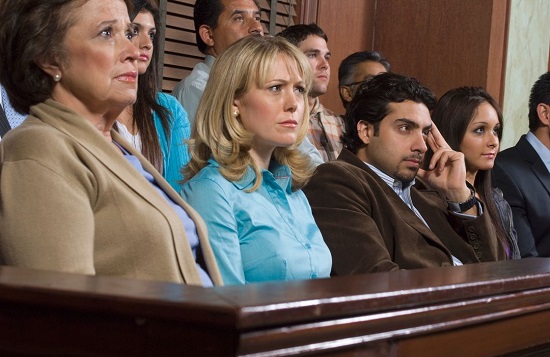You have filed your lawsuit and the defendants have been served. One of the next and most crucial steps will be the taking of your deposition.
What is a Deposition?
A deposition is the one and only chance that each of the defendant(s) get(s) to directly ask you questions regarding the details of your accident and injuries.
What to Wear?
You should wear something that you would feel comfortable wearing to a religious service. For men, I believe that jeans or slacks, and a button down shirt is the most appropriate form of dress. For women, there’s no need to wear a formal dress or pants suit. Again, whatever you feel comfortable wearing to a religious service would be appropriate. If you have more questions about this, you can always call before your deposition to discuss. I would not suggest wearing hats, hoodies or shorts to your deposition.
How to Act
The person who is asking you questions is not the person who caused your injury. Instead, they are simply the insurance company attorney who has been assigned the case. You should treat them with respect and be as conversational as you possibly can with them. They are testing you to see how well you will perform before a jury. You want to give them the impression that a jury will absolutely fall in love with you. You can do this by being congenial, expressive, honest, forthright, engaging, sympathetic and endearing. The defense attorney will then report back to the insurance company with regard to their impressions of you and the contents of the deposition.
Where Will the Deposition Take Place?
In a post-pandemic world, most defense attorneys want to do the depositions via zoom. If you are not zoom capable, don’t worry. We have a designated “zoom room” in which you will be given a computer and set up perfectly for your deposition. Your attorney will be in a separate room, as required under the rules. Your attorney will be appearing on the screen with you, and each of the defense attorneys will be appearing on the screen as well. Lastly, there will also be a court reporter who will be taking down everything that is said. It is important to wait for any of the parties to stop asking a question before you begin answering a question. Zoom is completely unable to produce audio for two people talking at the same time.
The Deposition Itself
The general parts of the deposition are as follows:
Who You Are
During this first part of the deposition, the defense attorney will explore who you were before the the accident at issue. They will ask you questions about places you have lived, places you have worked, prior injuries you have had, prior lawsuits you have filed, and prior medical conditions that you may have had before the accident. It is important to note that the defense attorney will use this information to perform certain background checks and to subpoena records to make sure that you are telling them the truth with regard to these pre-accident facts.
During this part of the deposition, opposing counsel will also be asking you questions about what types of things you enjoyed doing before the accident. It’s important to be expressive about how great your life was like before the accident as it will be compared to how your life was changed as a result of the accident.
How Did the Accident Happen?
In the second part of your deposition, the defense attorney will ask you about the facts of circumstances that surround your accident. If your accident was a rear end automobile accident, this will go relatively quickly. They will generally ask you where you were coming from and where you were going to and what happened in the accident. Keep it simple and keep it straightforward. It is important to note that people are generally poor estimators of time and distance. We should go over any distance and time questions specific to your case before your deposition.
Injuries and Treatment
The next part of the deposition will concentrate on the injuries that you have suffered and the treatment that you have received for those injuries since the accident. It will generally start with how you were feeling immediately after the accident. Who is the first doctor you saw or did you go to the emergency room? Or, when was the first time you sought medical treatment following the accident? Who is the next doctor you saw how were you referred that doctor? What did you tell that doctor? What treatment did that doctor render to you etc. etc.? This will generally go chronologically until present day where they will ask you how you were feeling now and what is the prognosis for your future. They will also ask you whether or not you have any additional appointments set.
How Has the Accident Affected Your Life?
During this last part of your deposition, the opposing attorney will give you an opportunity to express what sorts of things you do not do now that used to be able to do before the accident as a result of your accident related injuries. Here, you want to think about the different ways in which the accident has impacted your life. First and foremost, if you are unable to work and support your family as a result of the accident, that is certainly important. Second, before the accident, when you would get home from work, you probably took care of your house, children, pets, etc. You should express how you are unable to do those sorts of things now if applicable. Next, you should discuss how the accident has affected your interpersonal relationships with your family. Lastly, you should talk about what things you are unable to do now that used to be able to do prior to the accident such as sporting activities, leisure activities, social activities, etc. It is important for the defense attorney to understand what a huge impact your accident has had upon your life.
The deposition in your case is important. You should not be nervous because you are simply expressing how your life has changed since the accident. Easier said than done perhaps? Regardless, we will be there with you before, during and after the deposition to guide you every step of the way.
Take The Next Step
If you have been injured in an auto, truck or motorcycle accident, call 855.65.CRASH or contact us today to schedule a confidential consultation about your personal injury case.



